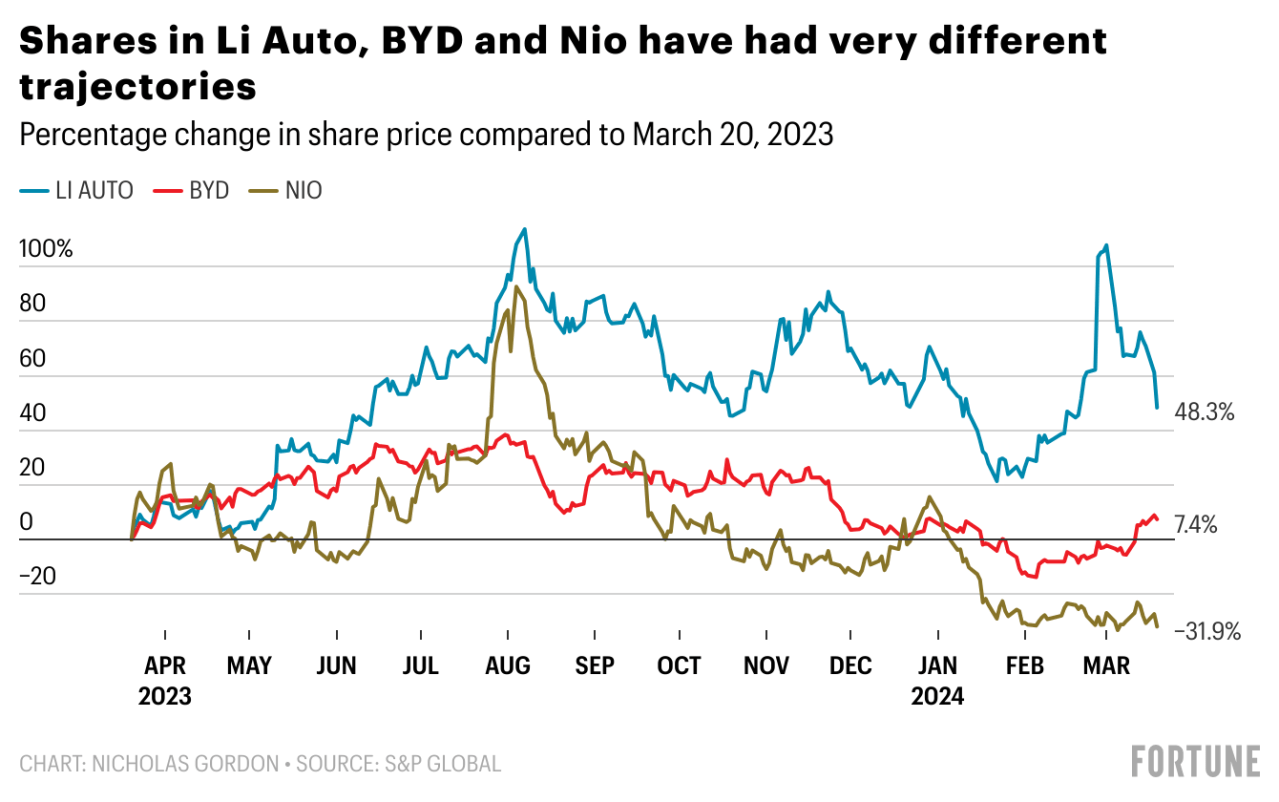China's BYD Targets Brazil's EV Market As Ford's Influence Wanes

Table of Contents
This article explores the strategic move by Chinese electric vehicle (EV) giant BYD to penetrate Brazil's burgeoning EV market, capitalizing on the declining influence of established players like Ford. We'll examine BYD's strategy, the current state of the Brazilian EV market, and the potential impact of this significant shift in the automotive landscape. The rise of BYD in Brazil could signal a major turning point for the South American automotive industry and the global EV race.
BYD's Strategy for the Brazilian EV Market
BYD's success in other international markets has been built on a multi-pronged approach, and their Brazilian strategy is no different. They are employing a combination of aggressive pricing, localized production, and a focus on building consumer confidence.
Aggressive Pricing and Localized Production
BYD aims to undercut competitors with competitive pricing strategies and plans for localized production to reduce import costs and boost sales. This is a crucial element in making EVs accessible to a wider range of Brazilian consumers.
- Investment in Brazilian manufacturing facilities: BYD is investing heavily in building or acquiring manufacturing plants within Brazil, reducing reliance on expensive imports and fostering local economic growth.
- Partnerships with local suppliers: Collaborating with local suppliers helps BYD access a robust supply chain, reduce costs, and contribute to the development of the Brazilian automotive sector.
- Leveraging existing BYD global supply chains: BYD’s established global network ensures a reliable and efficient supply of components, minimizing production disruptions and contributing to lower costs. This expertise is a key differentiator in a developing market.
BYD's track record of successful market entry in other countries, utilizing similar strategies, provides a strong indication of their commitment and potential for success in Brazil.
Targeting Specific Market Segments
BYD isn't attempting a broad-strokes approach; instead, they are focusing on specific market segments with high growth potential within Brazil.
- Focus on SUVs and smaller city cars: These vehicle types are particularly popular in Brazil, offering BYD a clear entry point into high-demand segments.
- Targeting environmentally conscious consumers: With growing awareness of environmental issues, there's a rising demand for sustainable transportation options, aligning perfectly with BYD’s EV offerings.
- Targeting ride-sharing services: Ride-sharing companies are significant consumers of vehicles, representing a lucrative potential client base for BYD.
Specific BYD models like the Tang SUV and smaller city cars are well-suited to the Brazilian market and its diverse geography and consumer preferences. Understanding these preferences is key to BYD’s success.
Robust After-Sales Service and Infrastructure
Addressing concerns about charging infrastructure and maintenance is crucial to build consumer confidence in EVs. BYD is tackling this proactively.
- Investment in charging station networks: BYD is actively investing in or partnering with companies to expand the EV charging infrastructure across Brazil, removing a major barrier to EV adoption.
- Training local technicians: Investing in training programs for local technicians ensures that there is sufficient skilled labor to maintain and repair BYD vehicles.
- Partnerships with local service providers: Collaborating with existing service networks allows BYD to quickly establish a widespread service presence across the country.
The importance of reliable after-sales service in emerging markets cannot be overstated. BYD's proactive approach in this area is a critical component of its market entry strategy.
The Current State of Brazil's EV Market and Ford's Decline
Brazil's EV market is currently small but presents immense growth potential. Ford's retreat creates a significant opportunity for new entrants.
Slow Adoption but Growing Potential
While EV adoption in Brazil is currently low compared to more mature markets, several factors point to significant future growth.
- Government subsidies and tax breaks for EVs: Government incentives are designed to stimulate EV adoption and make them more affordable.
- Increasing fuel prices: Rising fuel costs make EVs a more economically attractive option for consumers.
- Growing consumer interest in sustainable transportation: Environmental awareness is increasing, driving demand for eco-friendly vehicles.
Statistics show a small but steadily increasing number of EV sales in Brazil, with projections forecasting substantial growth over the next decade.
Ford's Retreat and Market Opportunity
Ford's decision to scale back its operations in Brazil, including factory closures and reduced model offerings, has created a noticeable void in the market.
- Ford's factory closures: The closure of Ford's manufacturing plants significantly reduces their production capacity and market presence.
- Reduced model offerings: A shrinking range of vehicles further limits Ford's appeal to Brazilian consumers.
- Decreasing market share: Ford's shrinking market share indicates a weakening position in the Brazilian auto market.
This decline creates a substantial opportunity for new entrants like BYD to capture market share and establish a strong presence.
Competition and Market Challenges
Despite the opportunities, BYD faces challenges in the competitive Brazilian EV market.
- Competition from other international and local brands: BYD will need to compete against established international and local brands offering EVs.
- Import tariffs: High import tariffs can increase the cost of imported vehicles, impacting BYD's pricing strategy.
- Charging infrastructure limitations: While improving, the charging infrastructure in Brazil is still developing, potentially hindering wider adoption of EVs.
BYD’s success will depend on its ability to effectively navigate these competitive challenges and contribute to the expansion of charging infrastructure.
The Broader Implications for the Global Automotive Industry
BYD's expansion into Brazil reflects a broader trend: the increasing global competitiveness of Chinese EV manufacturers. Their strategic moves, including localization and aggressive pricing, are forcing established players to re-evaluate their strategies. This represents a significant shift in the global automotive landscape, impacting not only Brazil, but also the wider South American market and beyond. The competition is heating up, and this is only the beginning.
Conclusion
BYD's ambitious foray into Brazil's electric vehicle market represents a significant shift in the global automotive industry. By strategically leveraging competitive pricing, localized production, and a commitment to a robust after-sales service network, BYD is well-positioned to capitalize on the opportunities created by Ford's retreat and the growing demand for electric vehicles in Brazil. The success of this venture will not only reshape the Brazilian automotive landscape but also underscore the growing influence of Chinese electric car manufacturers on the world stage. Stay informed about BYD's progress and the future of electric vehicles in Brazil and beyond – follow our future updates on the evolving landscape of the Brazilian and global EV markets.

Featured Posts
-
 In Memoriam Recent Obituaries From Our Town
May 13, 2025
In Memoriam Recent Obituaries From Our Town
May 13, 2025 -
 Tuckers Controversial Remarks On Chicago Cubs Fans
May 13, 2025
Tuckers Controversial Remarks On Chicago Cubs Fans
May 13, 2025 -
 Jelena Ostapenkos Stuttgart Semifinal Run Another Victory Over Iga Swiatek
May 13, 2025
Jelena Ostapenkos Stuttgart Semifinal Run Another Victory Over Iga Swiatek
May 13, 2025 -
 Black Widow I Skarlet Gioxanson Kai To Oristiko Telos
May 13, 2025
Black Widow I Skarlet Gioxanson Kai To Oristiko Telos
May 13, 2025 -
 Espn Changes Nba Draft Lottery Broadcast Analysis And Impact
May 13, 2025
Espn Changes Nba Draft Lottery Broadcast Analysis And Impact
May 13, 2025
